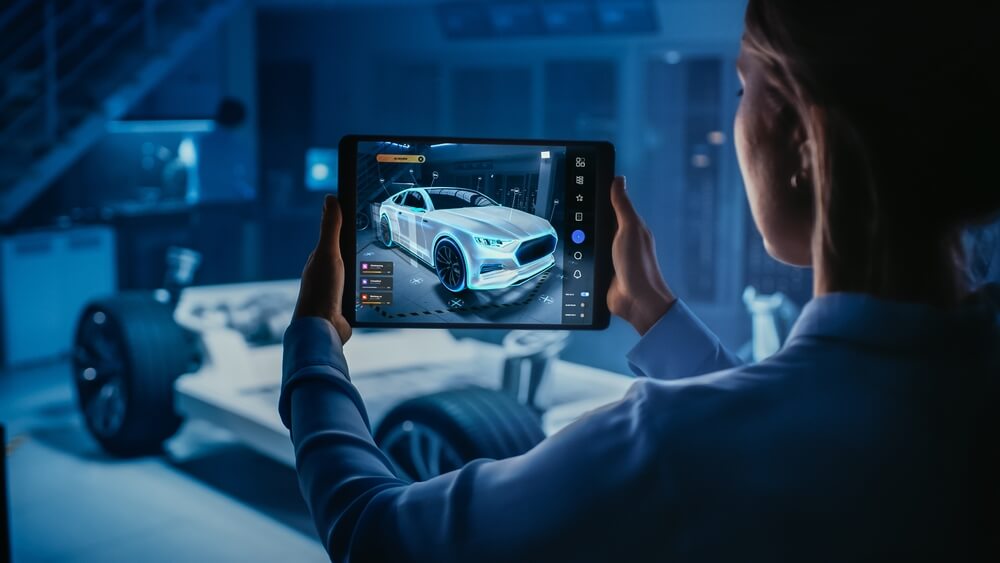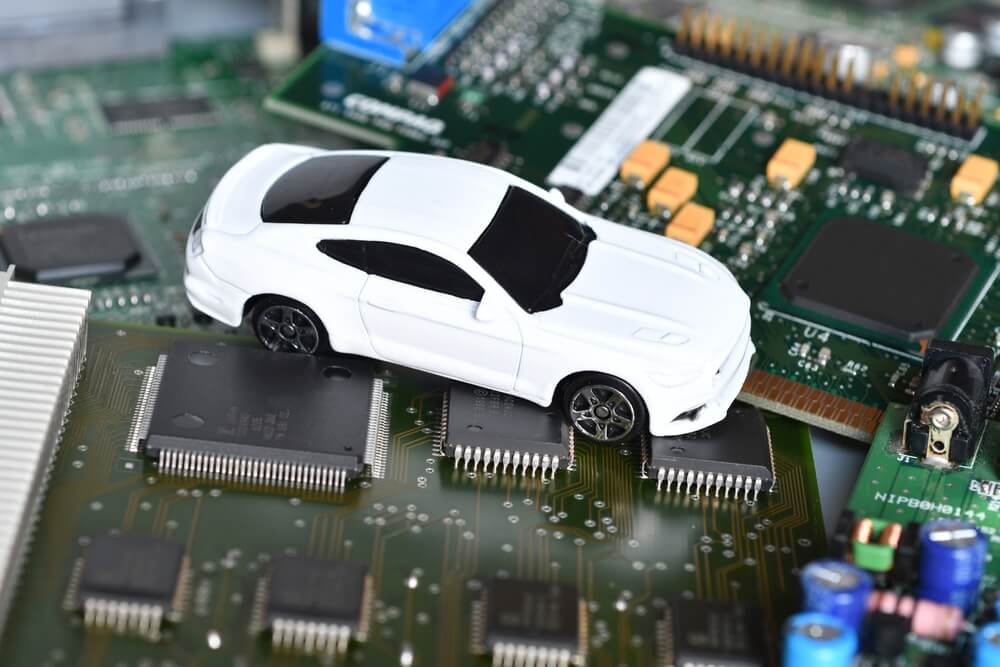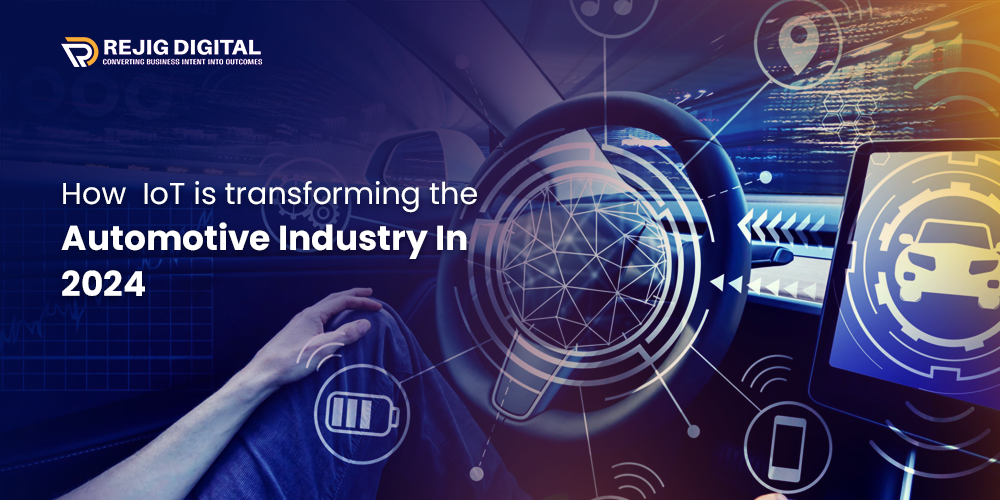We belong to an era where people are increasingly utilizing connected and smart devices in their day-to-day lives. Embracing these connected devices and gadgets helps from humans to the high-tech industry in bringing ease. IoT coverage transforming lives, processes, and operations. Also, forming enriched business models. Thus, IoT in automotive industry is no exception as well.
Automotive industry is moving toward innovation and immersive transformation at a fast pace. Integrating emerging technologies in the form of solutions and software is the crucial tactic.
The IoT in the automotive market is projected to reach a market value of approximately USD 289.36 billion by 2030, with a strong CAGR of 25.5% during the forecast period from 2023 to 2030. These insights indicated the growth and highlighted the increasing adoption of IoT technologies in the automotive sector, driving advancements in connectivity, automation, and data-driven solutions. (Source)
Choosing IoT for growth and innovation, a brilliant tech ladder to step up and up. IoT in the automotive industry is shining as a path to achieving better efficiency, productivity, and output. In this blog, we bring in the lamplight that the future of the automotive industry will largely depend on digitalization with trending technologies, especially IoT.
Overview of IoT in Automotive Industry
To unlock the efficiency of the automotive industry, sooner or later, the automotive industry has to start to rely on data-driven activities. Additionally, carrying out the advanced and prepared decision-making process.
IoT in automotive industry refers to the implementation of any IoT-enabled devices, networks, or gadgets. Moreover, embracing a unified ecosystem that empowers automotive businesses to welcome auto connectivity, fleet management, and predictive maintenance.
Key Reasons for Implementing IoT in Automotive Industry
- The capability of real-time monitoring and tracking of vehicle and infrastructure enable automotive businesses to detect collision detection and prevention and bring advanced safety into account.
- Automotive IoT solution helps businesses to gather data from the vehicle through sensors and perform the activity of optimization, maintenance, and fuel efficiency
- The connected infotainment system, personalised setting, voice activation, and other latest feature entitled by IoT aid in offering enriched driving experiences to the customers
- IoT generates a wealth of data on a daily basis. That consists of various aspects of the automotive industry including vehicle manufacturing, driver behaviourism, vehicle conditions, and others.
- IoT in The automotive industry aids in efficient fleet management through real-time data tracking and gathering. Ultimately lead businesses toward route optimization, reduce fuel consumption, and enhanced fleet productivity.
Besides the advancement in manufacturing and IoT and connected assets aspects, IoT in vehicles is another concept growing subsequently. This progression has given rise to the concept of connected cars, which bring forth new standards and norms within the automotive sector.
With the convergence of IoT and automobiles, the industry is witnessing a transformative shift towards smarter, more interconnected vehicles that offer enhanced capabilities and redefine the driving experience.
Let’s understand the role of IoT in automotive industry with connected cars.
What are Connected Cars?
The incorporation of IoT in automotive industry is making a significant and multifaceted contribution, surpassing conventional expectations. Connected cars are one of the results of it.
An internet-connected car is one that is equipped with various digital technologies and is connected to the internet. These integrated technologies enable vehicles and other external networks, devices, and infrastructure to communicate through seamless connectivity.
Connected cars leverage IoT capabilities to exchange data. Also, enabling a wide range of features and services that directly enhance the efficiency and overall driving experience. Drivers can easily get real-time traffic information, provide entertainment options, offer navigation assistance, and facilitate remote control and monitoring.
Moreover, flow in and out the communication between vehicles (V2V) for enhanced safety and cooperative driving. Connected cars are at the forefront of automotive innovation, transforming the way we drive and interact with our vehicles.
How Does Connected Car Works?

Digital Transformation in Automotive Industry through IoT-powered connected cars built by integration of various technologies and other communication enables connectivity and data exchange. Here are a few pointers that help in connected cars work.
-
Internet connectivity
Internet connectivity is a feature of connected automobiles. It may be accessed through cellular connections that are already built-in or by establishing a mobile network connection. This makes it possible for them to connect to outside networks and services.
-
Sensors and Data Gathering
Connected automobiles contain a network of a wide range of sensors that play a crucial role in gathering information about the operation of the vehicle, its surroundings, and the actions of the driver. GPS, accelerometers, cameras, and radar systems are a few examples of these sensors.
-
Data processing and analysis
Data processing and analysis step comes after the data gathering activity is done successfully. Using advanced software algorithms and onboard computers, data is processed and analysed in real-time. This makes it possible to derive relevant insights from the data and make decisions based on them, such as offering driver assistance or improving vehicle performance.
-
Communication and connectivity
With the help of vehicle-to-vehicle (V2V), infrastructure-to-infrastructure (V2I), and cloud-based services, connected automobiles are able to communicate with a variety of external organisations. Information sent through this interface includes traffic updates, road conditions, and auto diagnostics.
What are the Key Features of IoT-enabled Connected Cars?

The role of IoT in automotive industry is vast. Nowadays, innovation and exception solutions largely build around sensors and IoT connectivity. One of the innovations is in the form of connected cars and vehicles. We already discussed the definition of “Connected Cars”. In this section, we will learn more about the features that come with connected cars.
-
Safety First:
Connected vehicles or cars are designed by prioritising your safety by providing controlled driving speeds and distances, along with parking sensors and rear view cameras. Additionally, sensors monitor air pressure and notify drivers of any potential issues.
-
Smooth Traffic Management:
GPS is the modern-era thing. Hence, IoT in automotive industry empowers businesses to develop vehicles with built-in GPS devices that offer real-time traffic updates via Bluetooth or wireless internet connections. This helps you avoid congestion and reach your destination on time.
-
Vehicle-to-Vehicle Communication:
Connected cars can communicate with each other, sharing vital information such as traffic movement, road conditions, and speed limits. This improves overall driving efficiency and safety.
-
Eco-friendly Mobility:
Connected cars contribute to a greener environment by providing real-time data on people travelling in your direction who may need a ride. By offering them a lift, you can reduce emissions and promote eco-friendly transportation.
-
Enhanced Services:
The future of connected cars promises a seamless experience. Remote vehicle inspections, information on nearby parking spaces, advanced driver assistance systems, and personalised recommendations for hotels, restaurants, and charging points are just a few examples of the services offered.
-
Entertainment on the Go:
Enjoy a range of entertainment options while driving, including music, radio, movies, news updates, and instant messaging notifications. Stay connected and entertained throughout your journey.
Concluding Lines of IoT in Automotive Industry with Connected Cars
To smoothly implement IoT in automotive industry will be achieved by considering Rejig Digital as your digital transformation partner. Rejig Digital is a leading IoT-based service and solution provider company. We take pride in offering the Application of IoT in automotive industry and driving value to businesses. Our developed solutions are built with the ability to improve business productivity, lead to result-oriented activities, etc. Drop us a quick email and let our experts resolve your business challenges in their way.





